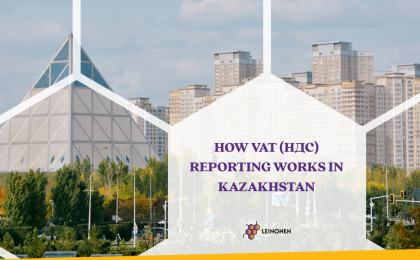Many international organizations end up implementing an ERP solution to manage their accounting needs across all countries where they operate in after growing past a certain point. Usually large multinationals use SAP or similar solutions to unify their financial accounting and reporting internationally.
Using SAP or other ERP solutions in Kazakhstan is very difficult, as it is difficult in all of the post-soviet countries where the accounting market is dominated usually by the 1C accounting and ERP solution. In these countries, tax accounting is very strict in its structure and rules. Whereas in any European country for example the organization´s financial accounting would equal its tax accounting, in Kazakhstan the situation is challenging. The differences arise from the strict way that expenses and income are allocated according to the dates of their realization. Additionally, the 1C ERP is the only solution that is constantly updated and connects to various govermental reporting portals.
As a result, if for example SAP is going to be used, there are usually two ways of going about it. The first and most common way is to run parallel accounting in SAP and in 1C. This increases the total cost of accounting, but can usually be optimized somewhat by exporting information between the systems. The second way is to go for full integration of SAP into the local accounting standards. This can be considered a very challenging IT project which requires skilled programmers and accountants working together to modify the system accordingly. What´s more, the norms and rules of accounting are changing rapidly in Kazakhstan, so the project is by no means ever “ready” but needs constant updating and overwatch. There are examples of such projects having failed, and the organization having to go back to parallel accounting with both systems.
It´s a good idea to consider carefully how to satisfy both corporate and local requirements for accounting, and how to minimize the cost involved. Before engaging in implementing a foreign ERP in Kazakhstan, the project lead must be very well informed about the complexities of the problems they will be facing. In our experience, in most cases it is more resource-efficient to perform some level of parallel accounting between the corporate ERP and the local accounting system. In the worst case, the organization would end up paying large sums to consultants trying to integrate the corporate ERP to local standards and fail to do so in the end, resulting in faulty tax reporting and fines on top.
Leinonen is happy to help your business thrive in the Kazakhstan market. If you have any questions or need assistance with accounting services in Kazakhstan, contact us!




